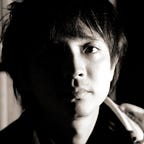There is another challenge to the sustainability of the method of dialogue, besides the hatred caused by the disarming bias.
Universal positions are not profitable.
Repeated position-talking to followers is a better way to expand power than to realize that the community and its members are trapped in bias. Developing power is usually profitable. Hitler did it, and even today, many people on the Internet are busy doing it.
Socrates, unlike other Sophists, did not accept money from his questioning opponents. He did not teach the art of debate with the explicit goal of “getting ahead by debating others within the community. “ Socrates himself was aware that there was no way his oratory skills could be used for career advancement. Therefore, he did not charge for it. On the contrary, the Sophists taught the art of debate to their clients in order to earn a living. The Sophists tutored the art to earn a living, and because they did not want to lose their jobs, they could not disobey the values of the community. “I’ m not like Socrates.”
Good. The demand for a counterbalance is, in a sense, a matter of taste. But then, how did Socrates make a living? The only way is to earn it by other labor or by unearned income.
If it is the former, one can only do the method of dialogue as an extracurricular activity. If it is the latter, it is ultimately incompatible with economic independence. It contradicts the intention of the method of dialogue, “freedom and equality,” as it invisibly exploits others.
Psychoanalysis and counseling, through payment, have become economically independent activities in themselves. Meanwhile, a universal position that breaks down bias can only be inhabited by journalists or within academia, which is external to the market in some sense. The latter (since it depends on high tuition, grants, and donations) is also unearned income.
The author thinks it would be ideal if the question-answering activity, removing bias itself, could be economically independent. Is that possible?
Before discussing this, the author would like to point out the Kantian position where it is not necessary to achieve both economic independence and the elimination of bias.
Common sense morality says, “First, pursue your own happiness, and then try to do good from a public, universal standpoint.” Adopting Kant’s morality of “pursue the good from a universal standpoint first, and happiness is a great blessing if it comes as a result (but it doesn’t bother us if we are unhappy),” it doesn’t matter if we incur the wrath of others or if we can’t make a living.
That is, in this Kantian position, the above issues are not a problem. It doesn’t matter if you are falsely accused of hatred and killed or die in poverty because you cannot support yourself financially, as long as the good is done.
Furthermore, even if Socrates died in vain and Plato parodied his intentions, the writings of his ideas were archived in the Islamic world, thawed during the Renaissance, became an influential factor in the resurgence of rationalistic thinking that led to the Age of Exploration and globalization. This preservation of the Socratic archive resulted in the significant export of liberalism, which advocates a universal position. In this sense, it was a great success except for many advocates who died an unfortunate death.
As pointed out in the previous article, the difficulty of trying to reconcile the Kantian good with personal survival tends, in the author’s opinion, to produce a turn toward pragmatism or a type of dogmatism that denounces others.
Moreover, we know the tragic historical fate of those who adhered to Kantian morality. It is daring to have the faith to persist even after knowing their future. In Kant’s case, he could preserve “God as a thing itself” outside the physical world and inside us (which we cannot recognize but can know through practice). In Kant’s morality, doing good is ultimately “to know God (through deeds).”
We live, by contrast, in an age when it has become challenging to implement Kantian morality in its raw form. This situation leads directly to the difficulties of liberalism and the rise of bare survivalism today.
So we seek an ethic little weaker and with as much technical support as possible. From there, the author would like to find a clue to the political philosophy of the DAO. I called it “weak anarchism” last issue.
To achieve this goal, we need some solution to economic self-reliance, not just Kant-like liberalism.
The next issue will focus on this issue.
